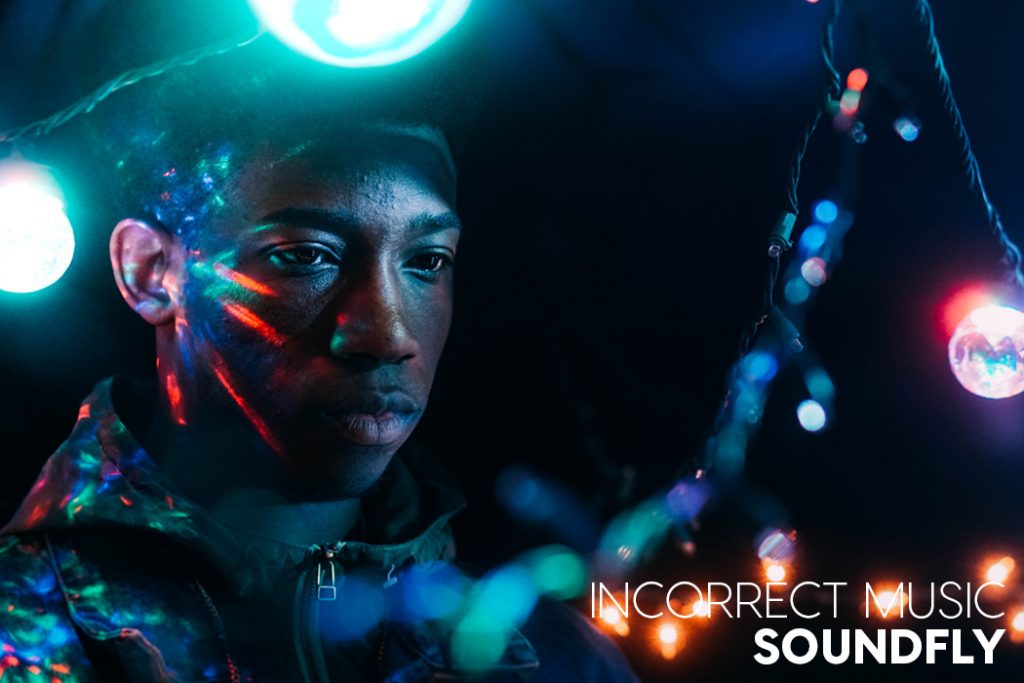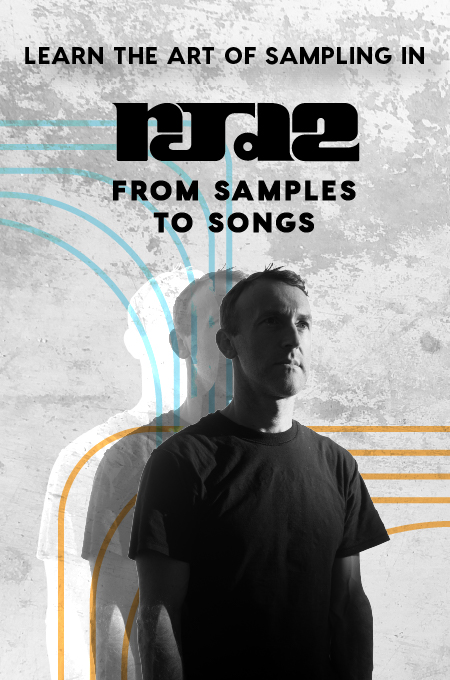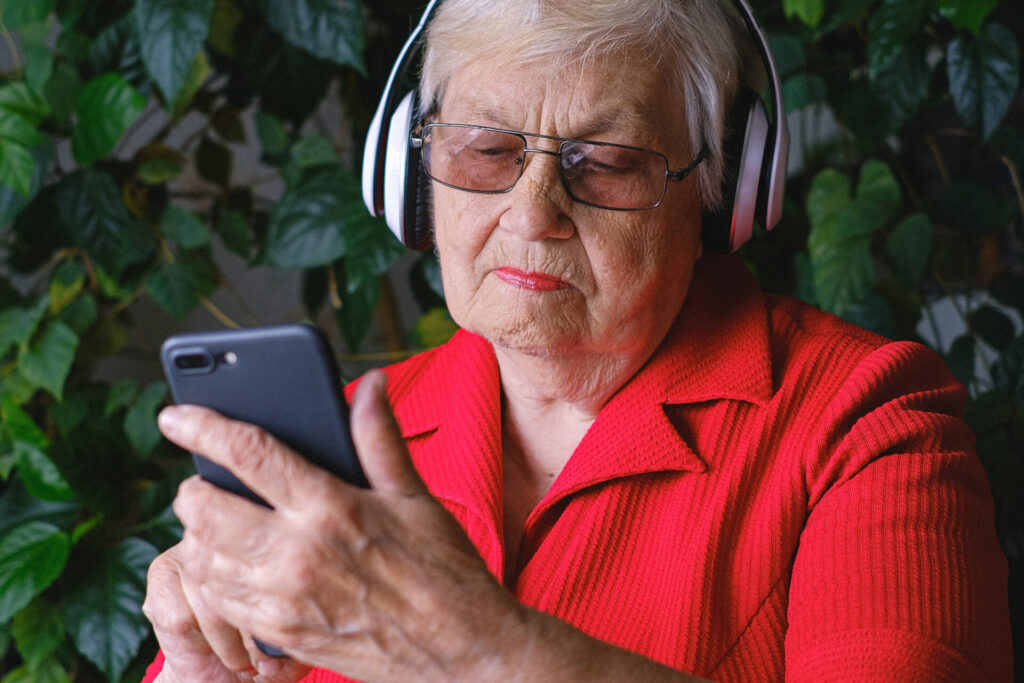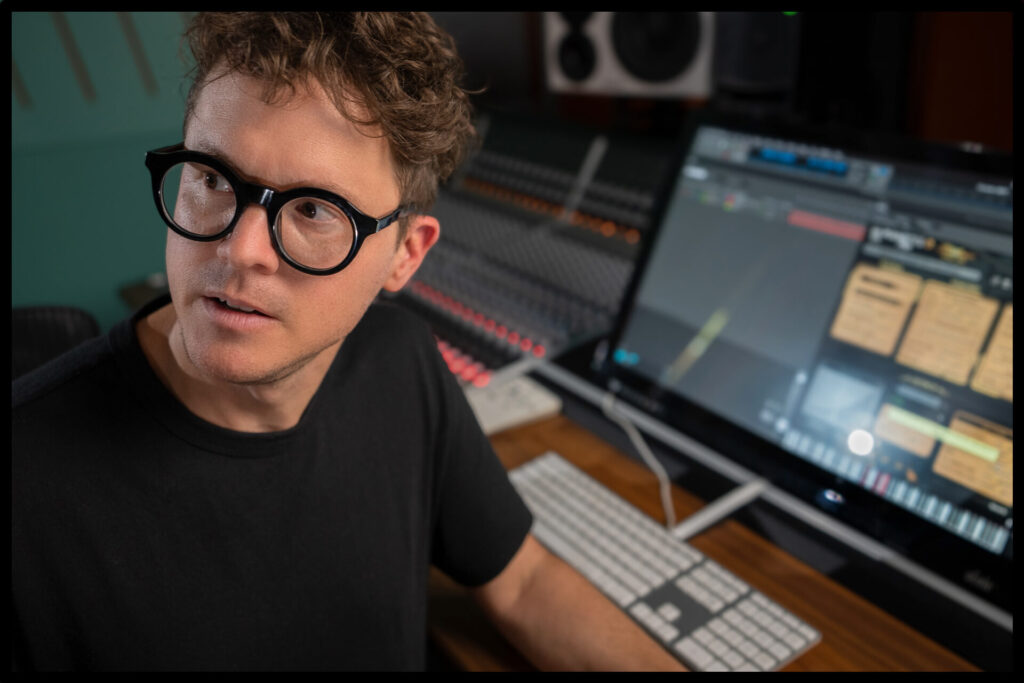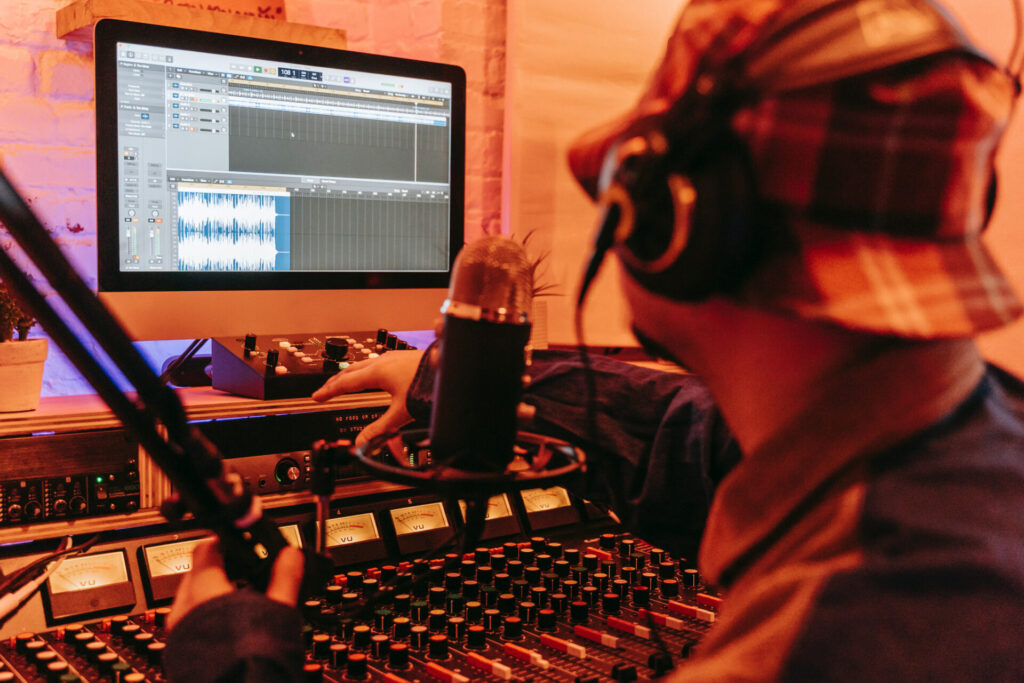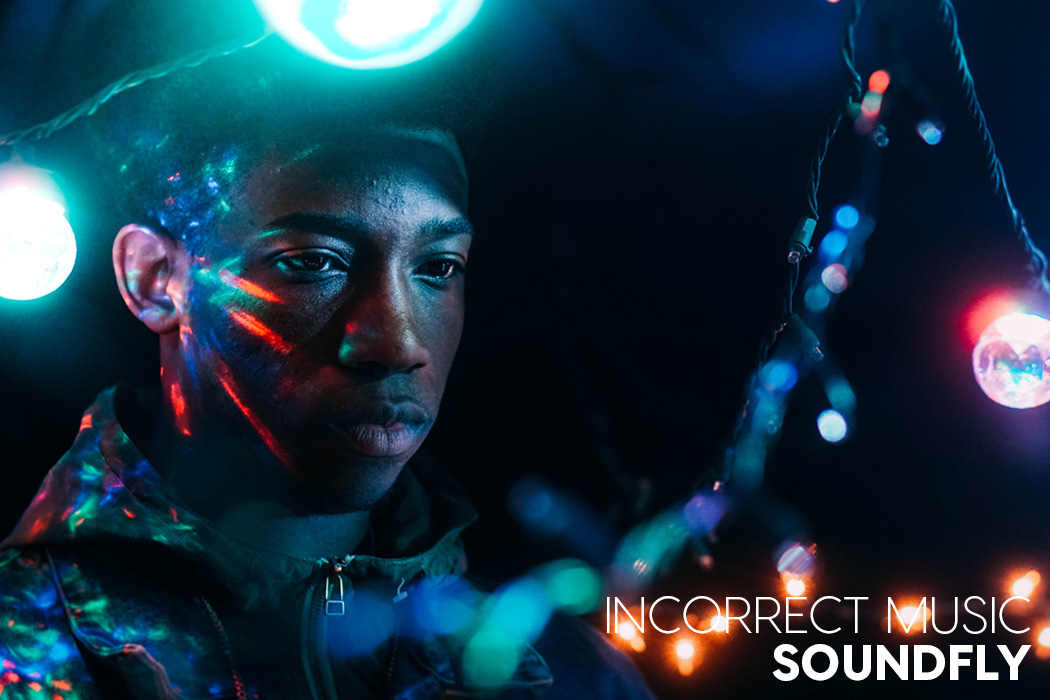
Welcome back to Soundfly’s weekly interview series, Incorrect Music, curated by guitarist, singer, and composer Lora-Faye Åshuvud (of the band Arthur Moon). In this series, we present intimate conversations with artists who are striving to push the boundaries of their process and craft.
Queens Village’s Akinyemi (this name means “fated to be a warrior” in Nigeria’s Yoruba language) is an up-and-coming rapper whose debut EP, summers, dropped this fall. It’s a mellow seven-track journey that oscillates between the daily aspirations and meditations of a young artist making his way through New York and the broader political (and, I think, mystical) zeitgeist of contemporary hip-hop. There’s an eclecticism to Akinyemi’s work that feels like it edges on my idea of “incorrect music” right away — his palette is vast and varied, but also surprisingly cohesive. “I never want to have an ‘Akinyemi-type beat’ on YouTube,” he says. There’s certainly style here, but it’s not in any danger of getting stale.
Akinyemi’s debut EP, summers, is out now.
– Lora-Faye Åshuvud
Interview by Zach Diaz
What first got you into rapping and hip-hop?
I’ve always been into it, ever since I could speak, and it’s always been around me. My family is comprised of a DJ, another emcee, and my parents just had some dope musical tastes growing up that I gravitated to and wanted to make my own. I started performing in my high school’s talent show, but as a producer, initially. I first got behind the mic freshman year of college at a little open mic with only 10 people. I looked up an instrumental off YouTube, pressed play, and started rapping… earlier days.
Having been a college student, how do you find balance between your academic studies and making music?
I don’t. I do the bare minimum to get by and to get that piece of paper. My focus is on music these days.
“I can’t do a song if it’s not authentic, if it’s not original. Those two are all I know, and I hope I never change that mindset.”
Who are some current artists that inspire you?
Steve Lacy — his harmonies are crazy. When I heard most of his joints were made off the iPhone I was dumbfounded. Jachary’s production always makes me go back to the drawing board. Rothstein is one of the best songwriters I know. And Amy Leon probably makes me tear up or cry every time I see her live.
How important are authenticity and originality to you?
Those two are all I got.
I can’t do a song if it’s not authentic, if it’s not original. Those two are all I know, and I hope I never change that mindset. That’s not to say I don’t sample or find inspiration from outside sources, it just means when I put “Akinyemi” on something, it has to be original and be my own creation. Even if it’s a feature, I like to be heavily involved in the creation process. In terms of authenticity, I literally write to express my inner battles and feelings.
So writing from experience is all I know how to do. I don’t understand how anyone could live a fake life rapping; it seems like an inner identity crisis.
What inspired the creation of your “Summer Sermons” series? Do you think there is value in creating short-form beats or rap songs (usually around a minute)?
“Summer Sermons” was an experiment. I was a look into releasing consistent content every week until the summers album project dropped. I think there is value! There’s definitely a feeling of, “F*^%, I wish this song was longer” that increases the overall replay value of the record.
As for my execution… well, that’s for you to decide.
“…my mood really determines what I’m making that day, and I won’t confine myself.”
Where do you go to find beat sample inspiration for your instrumentals?
Very old and rare vinyls and s*^t people ain’t normally listening to.
What are some of your goals when attempting to achieve a unique aesthetic in your music videos?
I just always think “what does the viewer first think when watching this?” Does it literally make them say “wow” when the video ends?
Those two are hella imperative, even for really simple videos, and I’m starting to take way more time with visuals, because they’re vital and important.
As a young artist, what are some of your short and long-term aspirations for your music career?
Short-term: [appear on the Sirius XM show] “Sway in the Morning.”
Long-term: Perform at an awards show, tour, get booked for festivals, meet Kanye, meet Cudi, meet Andre, meet Dre, play Rick Rubin my project and get feedback. Meet all the folks who I’ve been looking up to and have an opportunity for them to know who I am and for there to be a mutual respect.
I also wanna buy my parents a crib. That’s probably hella exhilarating. Overall, I wanna be able to look back and feel no regret and feel like I’ve accomplished something and am happy where I’m at in life in that moment.
At Soundfly, we love to use the term “Incorrect Music” to describe the things an artist does that go against people’s assumptions, or even their own instincts, but which yield exciting and unique results. What about your music might you consider to be “incorrect”?
I always experiment with tempo and the timbre of a record. I might drop a dance song, then drop a slow jazz song right after. Who knows. That’d probably be considered taboo or “incorrect” if I were signed or if I… cared. Haha. My mood really determines what I’m making that day, and I won’t confine myself. I never want to have an “Akinyemi-type beat” on YouTube or anything. I vary too much in my sound for it to be accurate.
Is there any specific meaning behind the title of your new EP, summers? What was your approach to writing lyrics for this collection?
summers got its name simply because I started it and recorded the first song of it, “Dust Calling,” last summer. Since summer is my favorite season, I wanted to make a collection of songs that you could bump every summer, whether it be road trips, beach days, or small get-togethers. summers took about a year to make, with each of the seven songs being a specific scene or experience that happened to me. “Onetime” being the most vulnerable story, sits right in the middle of the EP and showcases a story about my older brother who I lost contact with.
“Fleece” and “Change” were made during periods of brief depression and are songs about self-reflection and guidance. “Asylum” is the final song on the project, and I made sure it was the last thing the listener leaves with, because it has the most powerful message. I wrote it right after the shooting of Mike Brown occurred, where all the images I would see on my Facebook newsfeed were gruesome and gory — black victims being killed in cold blood. It was a dark time for me, and DuqueNuquem shot me a beat that matched that mood perfectly. Insanely inspired by it, I wrote the whole song in 30 minutes.
“Dust Calling” is the lead single off the record as well as the first song of the project because I feel it’s an experience which many rappers/entertainers start their day with — doubt. Wondering if they’re good enough to be welcomed into their respective “executive offices.” For dancers, it could be Broadway, for actors, it could be specific actors’ guilds, but for musicians, it’s the coveted “record label.” I made this song so that folks could feel relatable to the doubt they feel everyday in their respective fields. “Door unopened, hopefully they let me in” doesn’t only relate to musicians — it relates to that job interview, that opportunity that you’re told no, but you still strive for. It’s for everyone.
How important is it to you to collaborate with other rappers and/or producers?
Mad important. Most of my works are collaborations, from summers being completely produced by DuqueNuquem, to my upcoming works with ATELLER and Lionmilk. I think it wouldn’t be smart to live in New York City and not collaborate, there’s too many possibilities to end up with some dope s*^t.
I collab with producers pretty much all the time. In terms of other rappers, I’m pretty cautious or only really work with other rappers I run with. I like to have different sections on a song with people who are doing different things, let’s say, “One rapper, one singer, one guitar solo, one flute part,” etc. That’s probably why I haven’t worked with that many rappers, ’cause it’s too many folks doing the same thing.
What are some of your thoughts, positive or negative, on the current online community of SoundCloud and other music streaming platforms, as well as how they can help or hurt independent artists?
SoundCloud is where I started a few years ago, so it definitely hurt when folks said that the platform that I built everything from is now something “no one cares about” anymore. You know? It’s all about Spotify and Apple Music playlists these days. It hurts a bit, but as humans, we have to adapt, and I’m not gonna sit here and strictly throw my stuff on SoundCloud if that’s not the smart thing to do.
What was the best advice you’ve ever received and do you have advice for amateur artists out there looking to grow their careers?
Best advice I’ve gotten and could give is to be the best version of yourself. Stop comparing yourself to other artists and their wave and how many streams they got and whatever. Focus on how you can grow, focus on being the absolute best artist you can be. There’s not even enough time in the day to even do that sometimes, let alone worrying about an other artists flow.
Wake up and get it.
Want to get all of Soundfly’s premium online courses for a low monthly cost?
Subscribe to get unlimited access to all of our course content, an invitation to join our members-only Slack community forum, exclusive perks from partner brands, and massive discounts on personalized mentor sessions for guided learning. Learn what you want, whenever you want, with total freedom.
—
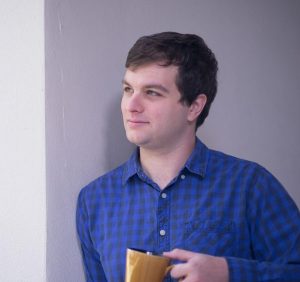 Zachary Diaz is a music producer, writer, and graduate student from Nacogdoches, Texas. He is currently a master’s student of music theory at Stephen F. Austin State University, where his research focuses on production and sampling in hip-hop and popular music. He is a contributor to fellow Martin Connor’s Rapanalysis.com. He is also the co-host of the Kick Knowledge Podcast, where he and fellow hip-hop scholar Steven Gilbers discuss hip-hop music and culture, as well as interview rappers, producers, and other hip-hop figures both in the industry and in academia.
Zachary Diaz is a music producer, writer, and graduate student from Nacogdoches, Texas. He is currently a master’s student of music theory at Stephen F. Austin State University, where his research focuses on production and sampling in hip-hop and popular music. He is a contributor to fellow Martin Connor’s Rapanalysis.com. He is also the co-host of the Kick Knowledge Podcast, where he and fellow hip-hop scholar Steven Gilbers discuss hip-hop music and culture, as well as interview rappers, producers, and other hip-hop figures both in the industry and in academia.
